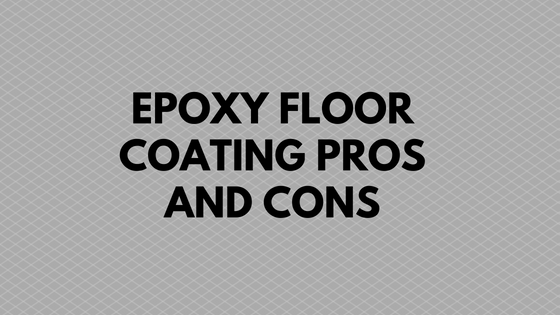If you want to protect your flooring from scratches and other damage, you should apply an epoxy floor coating. If you plan to apply an epoxy flooring coating during the cold months of winter, you will need to keep the effects of low temperature in mind when it comes to the storage of materials, application of the coating, and curing. Here are a few cold weather tips for applying an epoxy floor coating.
Review the Specs of the Epoxy Floor Coating
The product specifications of the epoxy will give you some guidance in terms of how you should apply the epoxy floor coating during cold weather. Therefore, before you even start prepping the materials, you should check the specs of the epoxy. You will find information about the recommended temperature ranges for application. There will also be information about the recommended dew points and humidity levels. In general, you should not apply the epoxy floor coating if the humidity is higher than 85% or if the temperature does not surpass the dew point by at least 5 degrees.
If you’re having a hard time interpreting the specs of the epoxy floor coating product, you should contact a professional from Boston Garage for more information.
Temperature Tips for Epoxy
When it comes to applying an epoxy floor coating during cold weather, the most relevant temperature is the temperature of the floor rather than the temperature of the air within your home. The reason for this is because when you apply epoxy to the floor, the temperature of the epoxy will immediately take on the temperature of the floor.
The temperature of the epoxy product will affect the success of the process of applying an epoxy floor coating. Changes in temperature can cause a drastic change in the working properties of epoxy. An epoxy coating that is usually 400 CPS can become 2000 CPS as a result of cold weather. An epoxy coating with a very high CPS will be harder to roll, trowel, and squeegee.
Consider a Polyurea or Polyaspartic Coating
If you absolutely must apply a coating to your floor during cold weather, you may want to consider another type of floor coating rather than epoxy. Polyurea or polyaspartic floor coatings are far more suitable for use during cold weather. You won’t have to worry about the cold weather making the process of applying floor coating harder for you if you use polyuria floor coating. If you’re unsure about where you can obtain this type of coating, polyurea floor coating is offered by Boston Garage. In many cases, polyurea floor coating provides even greater protection than even epoxy floor coating, a product that is often lauded by professionals for the superior protection it offers.
Applying an epoxy floor coating during cold weather can be a difficult and stressful process. Therefore, you want to know the effects of applying epoxy in cold weather beforehand so you can prepare properly. Fortunately, the tips discussed above should be able to help you with this dilemma. For more information or guidance, contact us at Boston Garage.
